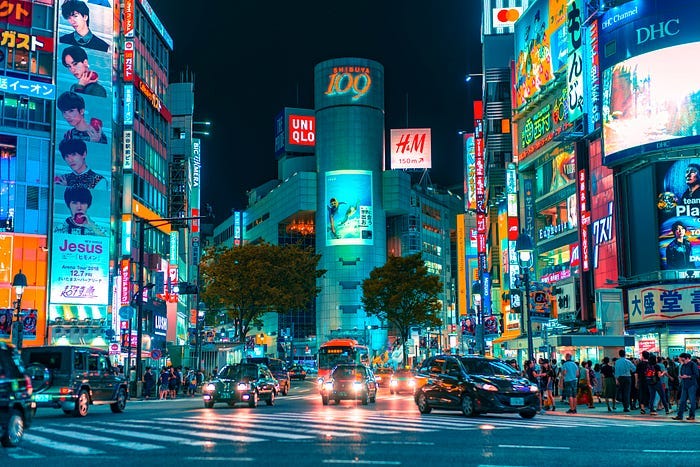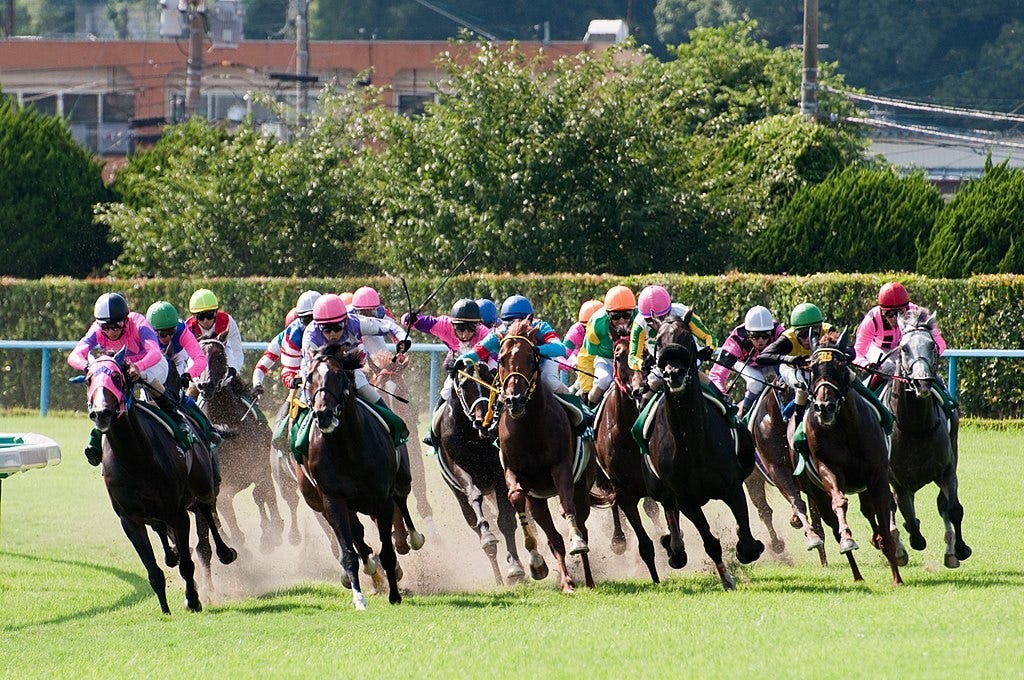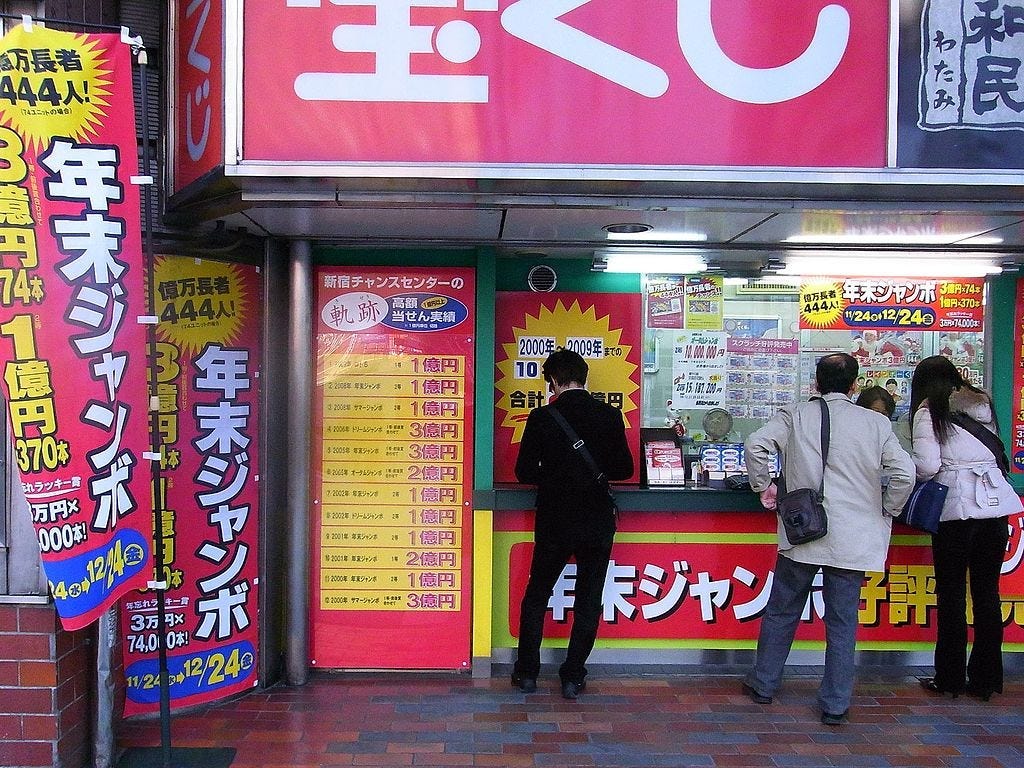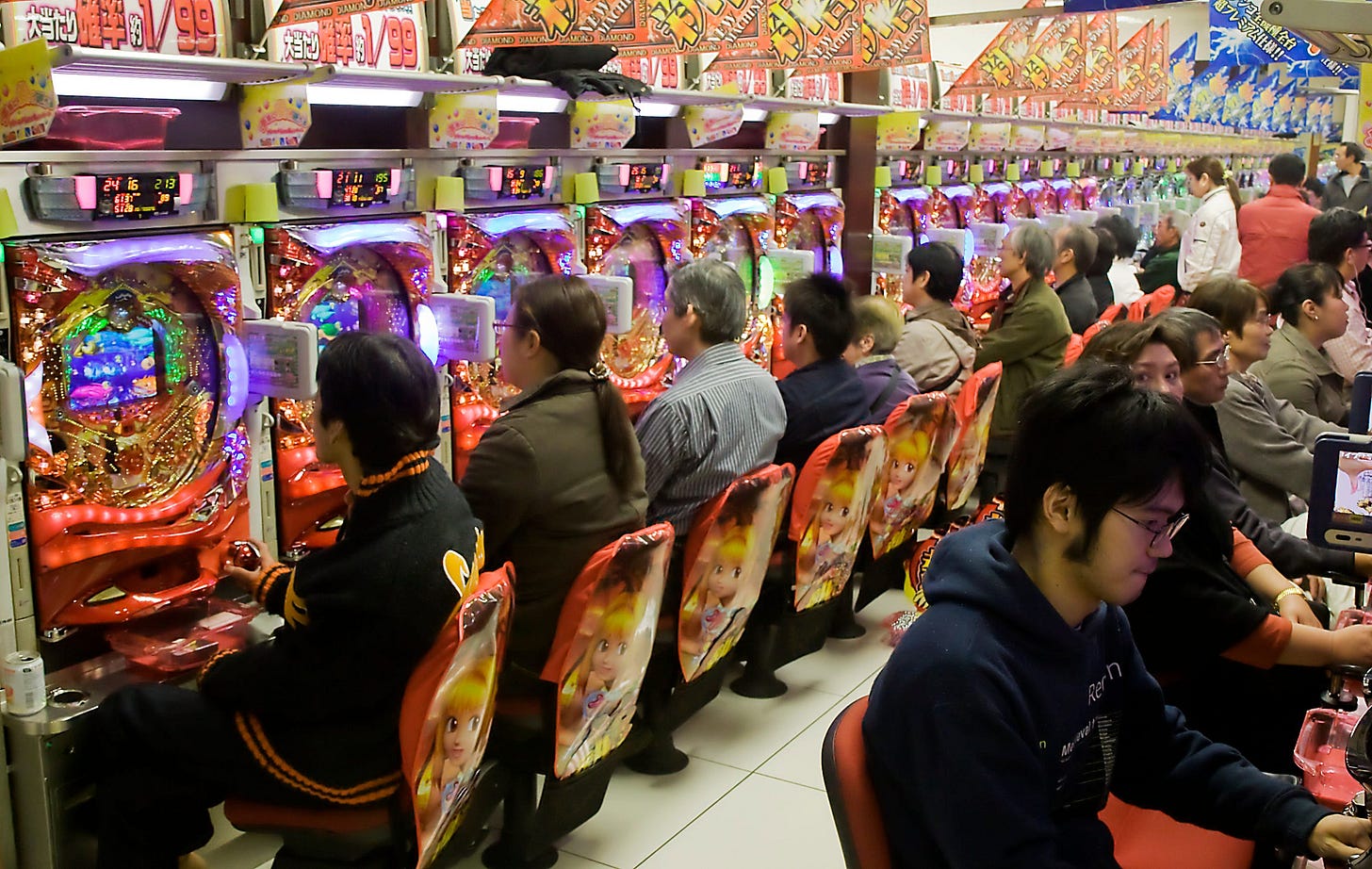If you live in the US, you may remember the case of the Japanese gambler that came to light in March 2024. Ippei Mizuhara, the interpreter for Japanese Major League Baseball player Shohei Ohtani, lost 40 million USD in illegal gambling and spent Ohtani’s money without permission. Just last week, he was sentenced to 57-month in prison and ordered to pay nearly $17 million in restitution.
Although this is an extreme case, and it happened in the US, the fact is that Japanese people are among the world’s biggest gamblers.
Japan is often seen as an ideal country with its long life expectancy, impressively low obesity rate and small numbers of alcoholics and drug addicts. Why can’t we Japanese resist the temptation of gambling? And why is this issue almost unknown in Japan and around the world?
I have long been interested in this issue. In this article, we will find the answers to the questions above while looking at the current situation and future of gambling in Japan.
1 in 20 Japanese is a gambling addict

First, let’s see the official data to see how serious this problem is in Japan. In 2014, the Ministry of Health, Labour and Welfare announced that the prevalence of gambling addiction in Japan was 4.8% (8.7% for men and 1.8% for women) and that there were 5.36 million gambling addicts (source).
The Economist’s 2016 estimates of gambling losses show that the United States, China, Japan, Italy, and Australia are the top five countries in terms of national loss. The top five in terms of loss per adult are Australia, Singapore, Ireland, Finland, and the United States, and Japan did not make the top 15.
Japan may not seem that bad here, but that’s because, as I’ll explain below, the majority of gambling in Japan is not reflected in the data. It’s also becoming increasingly difficult to obtain complete data.
Only public gambling is permitted in Japan
Gambling is mostly prohibited in Japan, and those who gamble will be fined up to 500,000 yen. The crime of habitual gambling is even more severe and carries a maximum penalty of three years imprisonment.
Even so, there are exceptions for so-called ‘public competitions (公営競技)’, such as horse racing (4.3 trillion yen = 31 billion USD), bicycle racing (1.2 trillion yen = 8.3 billion USD), boat racing (2.4 trillion yen = 17 billion USD) and auto racing (110 billion yen = 780 million USD). The figures in brackets are the sales for 2023 (source). The rate of return (percent of wagered funds that gamblers win back) for betting on these events is around 70–80%.
Generally speaking, these types of gambling used to be the hobby of middle-aged men. Recently, however, the Japanese government departments organising these events have deliberately created a positive image by using famous actors in their advertising (example). Some venues have even started to set up family rooms and hold events for families.
Other public gambling includes the lottery (830 billion yen = 5.9 billion USD in 2022) and sports lottery (120 billion yen = 850 million USD in 2023) (source). The rate of return to lottery winners is low, at around 50%.
Lotteries are often seen as a more socially acceptable pastime than horse racing. Even people who frown on gambling tend to buy lottery tickets casually.
In addition, public gambling is often held to support victims of natural disasters. In such cases, more people buy tickets without feeling too guilty.
I want to highlight here that the data on gambling losses in Japan mentioned earlier only includes figures for public gambling.
Pachinko takes advantage of loopholes in the law
In Japan, there is a game called pachinko (パチンコ). It is like a sophisticated pinball machine. You buy small silver balls called pachinko balls with cash, and you put them into the machine. If they land in the hole you are aiming for, more balls come out. There are also machines called pachi-slo (パチスロ), which are similar to slot machines. You can play them at pachinko parlours, so in this article, I will refer to both as pachinko.
The first pachinko parlour opened in Nagoya in 1930. At its peak in the 1990s, there were over 17,000 pachinko parlours in Japan. Since then, the number has gradually decreased; in 2023, there were 6,734 (source). Still, you can see pachinko parlours near many train stations and along main roads. For the Japanese, they are as familiar as supermarkets, cafes and hairdressers. If you are travelling in Japan, you will definitely see a few.
According to the ‘DK-SIS White Paper 2024’ by Daikoku Electric, the pachinko market’s sales in 2023 were 15.7 trillion yen (= 110 billion USD), which is 1.7 times the total sales of public gambling.
In other articles, you may see the mistaken information that ‘pachinko is not gambling’. In reality, pachinko is gambling under Japanese law.








